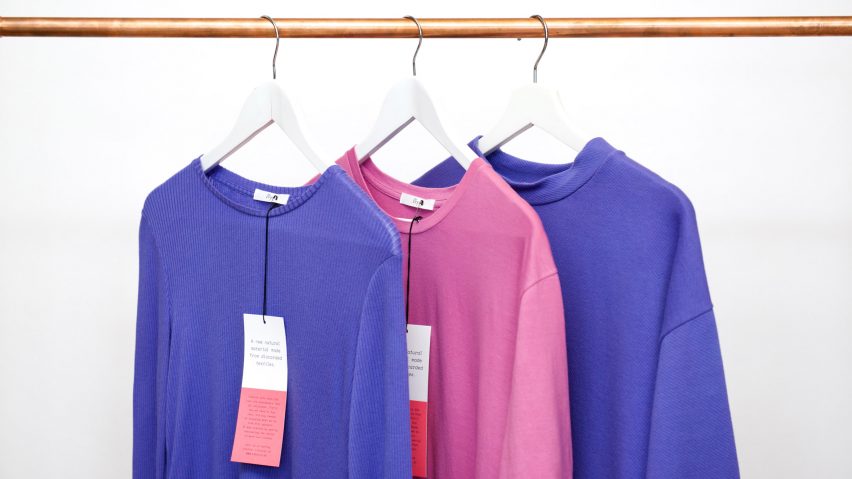Swedish company Re:newcell is aiming to disrupt the fashion industry and save natural resources by creating garments from Circulose – a new material made from recycled cotton clothes.
Circulose was developed in response to the issue of waste generated by the fashion industry, which sees the vast majority of unwanted or worn out garments end up in landfill or incineration plants.
According to the company, which has its main office in Stockholm and operates a chemical recycling plant for pre- and post-consumer textiles in Kristinehamn, Sweden, less than one per cent of clothes are currently recycled.
Circulose aims to reduce the fashion industry's reliance on virgin cotton, oil production and the harvesting of trees by reusing discarded textiles to create an innovative new material.
"Circulose was created with the ambition to shift the entire industry to circularity and to dramatically lower the impact fashion has on the environment," said Harald Cavalli-Björkman, head of brand for Circulose.
Re:newcell is preparing to launch a range of garments made using its recycled fabric early next year, through collaborations with selected retailers.
The company described the garments as "the world's first clothes made from circular cotton", and suggested that "while there are several initiatives experimenting with new circular materials, this is the first solution that works on a larger scale".
Re:newcell joins many other brands seeking to adopt circular design processes within their business.
Adidas has produced a sneaker made from plastic that can be ground up and reused again, while IKEA's head of sustainability recently told Dezeen about the firm's plans to become a circular business by 2030.
The Re:newcell process begins with customers donating garments with a high cellulosic content (cotton and viscose) to the company, which reuses chemicals to dissolve the natural fibres.
The resulting mixture is dried to produce a new, biodegradable raw material called Circulose pulp, which is packaged into bales and fed back into the textile production cycle.
Re:newcell added that its recycling system is vastly more sustainable than existing processes used to manufacture clothing fibres, as it uses less water and chemicals, emits less CO2 and helps to preserve the world's resources.
Currently, the plant in Kristinehamn produces around 7,000 tonnes of Circulose pulp per year. The material is certified, organic, biodegradable, recyclable and offers similar characteristics to conventional cotton fibres.
"As a new material, we knew Circulose had to do three things in order to make a real difference in the industry; it needed to be circular, it needed to be affordable, and it needed to deliver the quality that people expect," said Cavalli-Björkman.
"We're now incredibly excited about our upcoming collaborations with some of the world's leading brands to bring this material to the fashion runways and into the closets where it belongs," he added.
The new collection of Circulose clothing was presented at the recent Première Vision fashion and textiles fair in Paris, ahead of its distribution to stores early in 2020.

